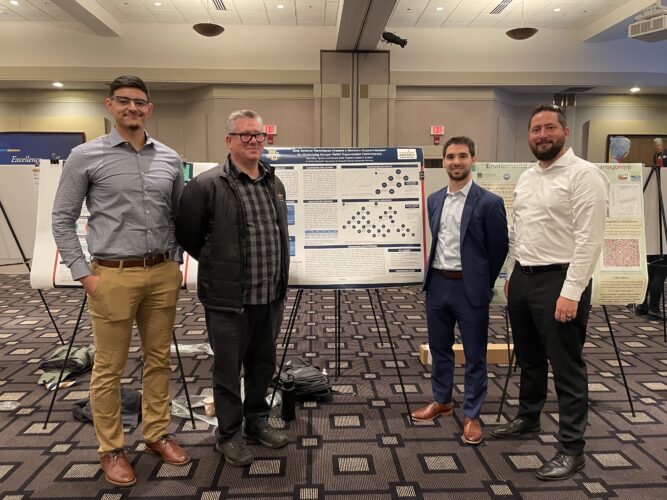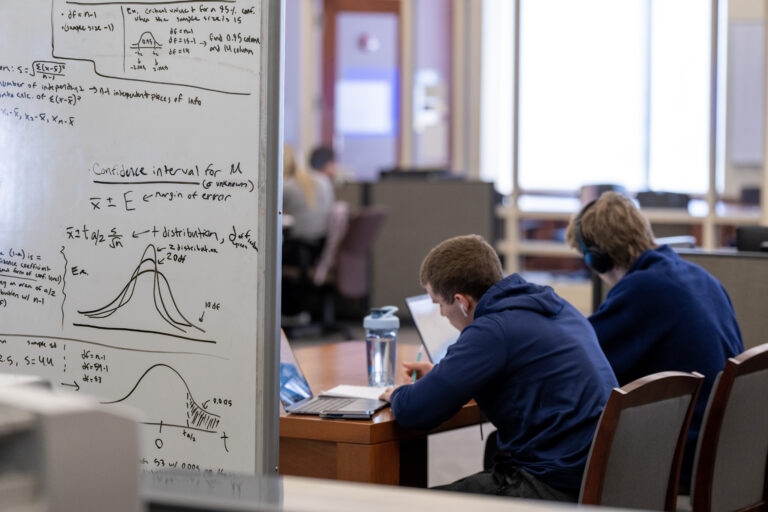
The Marquette University President’s Challenge was launched in 2018 to help address areas of need throughout Milwaukee. Few could have anticipated the challenge’s utility just two years later as the COVID-19 pandemic devastated whole communities, magnifying the need for collaborative, innovative solutions to the most pressing problems in the city’s neighborhoods.
Armed with a $45,000 President’s Challenge award in 2020, Dr. Walter Bialkowski and his team set out to tackle one such issue: food insecurity.
The assistant professor of practice in the Department of Computer Science has since been on a mission to find ways to optimize public food service distribution to meet growing needs brought on by disastrous levels of sudden unemployment.
To do so, Bialkowski joined forces with Feeding America Eastern Wisconsin to improve food allocation through community partners.
“That award allowed us to build a partnership and establish the groundwork and foundation needed to combine 40 years of expertise in trying to end hunger and the sophisticated data science techniques that we teach to our students,” Bialkowski explains. “We’ve also built our own culture of discovery which includes combining student projects with the needs of the institution Feeding America to meaningfully change how they do their job.”
The key to wider distribution
According to Feeding America, Wisconsin has more than 530,000 people facing hunger; in Milwaukee County alone the food insecurity rate among children is 21%, underscoring the importance of Bialkowski’s efforts.
Team member Alex Kikos, a graduate student in the sports and exercise data analytics program, says they are using data they’ve collected over the last several years to help determine how food pantries and soup kitchens can distribute as much food as efficiently as possible.
Evidence revealed one tool specifically that could markedly increase food allocation.
“One model we looked at that entailed the pounds of food per insecure persons, found that a forklift improves an agency’s ability to distribute food to food insecure persons in their county by eight times,” Kikos says, adding that expanding their data set nationwide could help uncover other solutions.
“There are 60,000 food pantries in the country just with Feeding America alone,” Kikos says. “Being able to grow this and collect more data, analyze it, run the same type of models — it will be interesting to see if there are other important features to be found. But for this type of information, using a forklift is exponentially more important.”
Computer and data science senior Eduardo Carrasco also works on the project. He says his goal is to help Feeding America be more proactive with their distribution.
“Right now, much of what they do is reactive, so we want to get ahead of food shortages and distribution problems. We want to be able to predict those problems to empower them to make better decisions.”
Seeing the potential for impact
With the new data, Chief Operating Officer Jeff Joslyn says Feeding America Eastern Wisconsin and its community partners are hopeful they can create a successful path forward.
“If it’s a forklift that’s going to help them move pallets of food more quickly and efficiently, we can work with them to make that happen,” Joslyn says. “There’s more than enough food in our country to feed everybody. The issue is often, logistics and finding out how to get into those communities to serve the people. We are trying to do that with an equitable lens as well.”
When looking toward the future, Bialkowski says there is plenty of room for growth.
“I think, together, we have seen the potential for impact, and we’ve seen how students can participate in an experiential pipeline where they are applying what they’re learning in the classroom,” Bialkowski says. “Those projects can meaningfully provide food for those who are facing food insecurity and so this partnership has the potential to scale not just within Feeding America Eastern Wisconsin, but across the entire country.”


